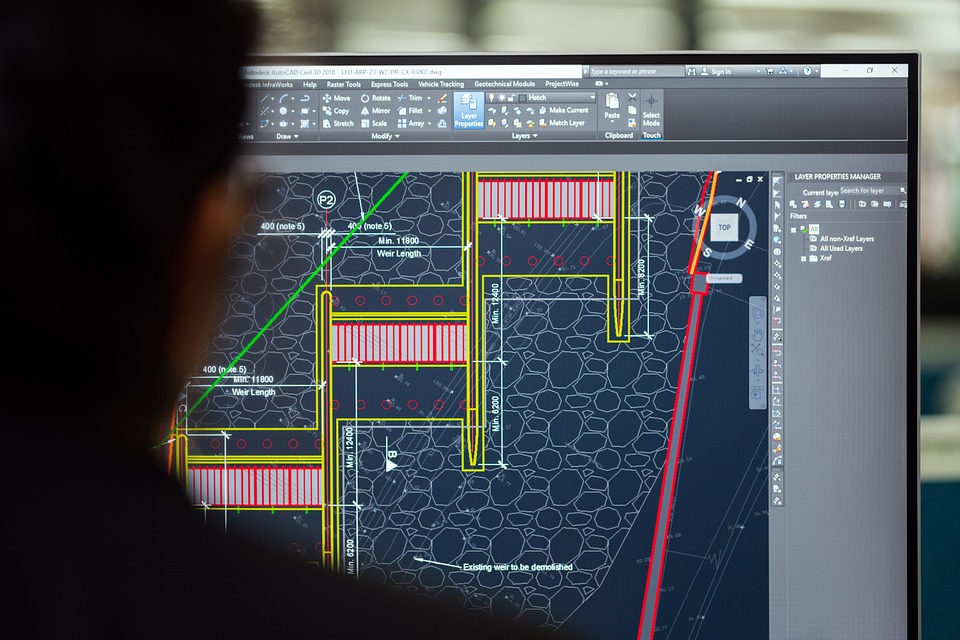

Turkey has seen a boom in the construction industry in recent years, with numerous civil engineering projects springing up across the country. As a result, there is a high demand for qualified civil engineers to work on these projects. For those looking to work in Turkey as a civil engineer, it is important to understand the work visa and employment regulations that apply to this profession.
Work Visa Requirements for Civil Engineering Jobs in Turkey
In order to work in Turkey as a civil engineer, foreign nationals must obtain a work visa. The process for obtaining a work visa for civil engineering jobs in Turkey can be complicated, so it is important to understand the specific requirements.
First and foremost, foreign nationals must have a valid job offer from a Turkish employer in order to apply for a work visa. The employer will need to provide a letter of invitation, as well as additional documentation such as a copy of the job contract and proof of the employer’s registration with the relevant Turkish authorities.
In addition to the job offer, foreign nationals will also need to provide certain personal documents in order to apply for a work visa. This includes a valid passport, proof of qualifications and experience as a civil engineer, and a medical certificate indicating that the individual is in good health and free from any contagious diseases.
It is important to note that the requirements for obtaining a work visa can vary depending on the individual’s nationality and the specific circumstances of their employment. For this reason, it is recommended to consult with a legal expert or immigration consultant who is familiar with the Turkish immigration system in order to ensure that all necessary documentation is in order.
Employment Regulations for Civil Engineering Jobs in Turkey
Once a foreign national has obtained a work visa and begins working as a civil engineer in Turkey, they must adhere to certain employment regulations. These regulations are put in place to protect the rights of both employees and employers, and ensure that the working conditions are fair and safe.
One of the key employment regulations that civil engineers must follow in Turkey is the Labor Law. This law sets out the rights and obligations of both employees and employers, including regulations around working hours, overtime pay, vacation time, and termination of employment.
In addition to the Labor Law, civil engineers working in Turkey must also adhere to specific regulations set out by the Chamber of Civil Engineers. This professional organization oversees the practice of civil engineering in Turkey and sets out guidelines and standards for professional conduct.
Another important aspect of employment regulations for civil engineers in Turkey is workplace safety. Employers are required to provide a safe working environment for their employees, and civil engineers must adhere to all health and safety regulations in order to protect themselves and their colleagues.
FAQs
Q: Can I work in Turkey as a civil engineer without a work visa?
A: No, foreign nationals must obtain a work visa in order to work as a civil engineer in Turkey.
Q: How long does it take to obtain a work visa for civil engineering jobs in Turkey?
A: The timeline for obtaining a work visa can vary depending on the individual’s nationality and the specific circumstances of their employment. In general, it can take several weeks to several months to obtain a work visa for Turkey.
Q: Are there any specific qualifications required to work as a civil engineer in Turkey?
A: In order to work as a civil engineer in Turkey, individuals must have a degree in civil engineering from a recognized university, as well as relevant work experience in the field.
Q: What is the average salary for civil engineering jobs in Turkey?
A: The average salary for civil engineering jobs in Turkey can vary depending on the individual’s level of experience, qualifications, and the specific project they are working on. In general, salaries for civil engineers in Turkey are competitive compared to other countries in the region.
In conclusion, understanding the work visa and employment regulations for civil engineering jobs in Turkey is essential for those looking to work in this dynamic and growing industry. By familiarizing themselves with the requirements and regulations that apply to their profession, foreign nationals can ensure a smooth and successful transition to working in Turkey as a civil engineer.
Turkey is a country situated at the crossroads of Europe and Asia, with a rich…
Turkey's finance industry is known for being highly competitive, with a growing demand for professionals…
In recent years, Turkey has experienced significant growth in the job market, leading to an…
Job hunting in Turkey Creek can be a challenging process, but with the right strategies…
Business analysts play a crucial role in the success of businesses in today's competitive environment.…
Success Stories: Thriving in the Business Administration Field in Turkey Turkey has been experiencing significant…
This website uses cookies.